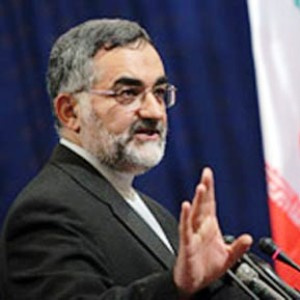The European Ambassadors’ Op-ed

IRD: How do you assess the article by these six former European ambassadors and Iran’s nuclear dossier?
AB: Despite the fact that the West has used all its capacities to halt the enrichment of uranium in Iran, which is done within the framework of the NPT, the IAEA, and for peaceful purposes; they have come to unofficially accept this right due to our serious defense of this program and the attempts of the Iranian Parliament. When they proposed the swap of 5.3% with 20 % enriched uranium, it actually meant that they had accepted the legal nature of Iran’s enrichment. However, this written suggestion by former European ambassadors is a valuable step forward to legitimize this issue, and it seems that their proposal will help Iran solve this problem and be recognized in the global nuclear club. We have been able to prove our presence through this legal process and this article could help us legitimize this presence.
IRD: This op-ed was published while just last week Mr. Amano released a report against Iran. How do you see this circumstance?
AB: Amano is very obedient of US policies; this was true about him even when he was the representative of Japan in the agency. The fact that Amano wrote that report based on the alleged findings of the US shattered the position of the agency as an independent structure, changing it to a political one and damaged its reputation, and therefore he should be accountable to all members of the IAEA. Recently some non-aligned countries endorsed the policies of the Islamic Republic, Iran’s performance, and the reports of the IAEA show the same thing. Therefore, Amano’s report lacks any legal value and the work of these ambassadors was a step toward pragmatism in regards to Iran’s peaceful nuclear program.
IRD: How do you think Arab countries, especially Saudi Arabia which put the West under severe pressure because of Iran’s nuclear program, will react to this?
AB: The position of Saudi Arabia has no international legal value. Saudi Arabia tries to prove its existence in region by resorting to any policy, considering the many problems it currently faces in its policies. However, in terms of its position in the nuclear club, Saudi Arabia lacks any credit.
IRD: Do you think this letter could facilitate Iran’s future negotiations?
AB: We have always announced our preparedness to negotiate based on Iran’s proposed package. This has been the fixed stance of the Islamic Republic, and whenever the 5+1 group confirms negotiations, they can naturally take place.
IRD: What will be the reaction of the Islamic Republic to this op-ed piece?
AB: Iran’s position should be clarified by the foreign ministry spokesman. But I believe that this step was taken in line with the reality, and is considered a positive step forward.
IRD: Can we consider this a retreat from the Western side?
AB: There’s no need to use words that will not help solve the problem.

